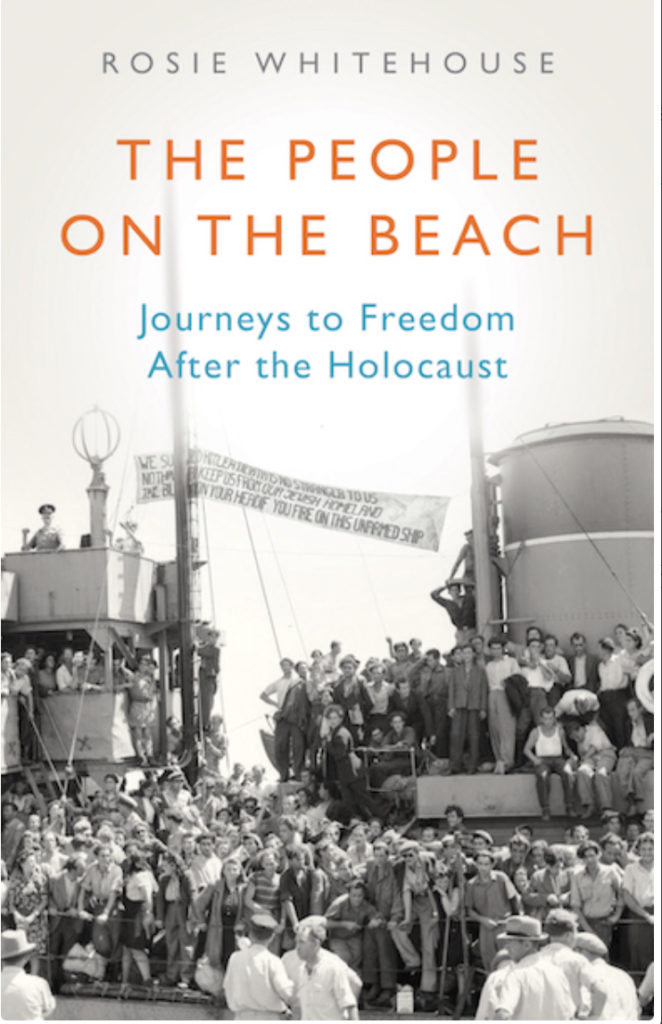The story is not over
Our weekly Torah portion marks the transition from one generation to the other. It starts with Sarah’s death, and it concludes with Abraham’s death. In the meantime, Abraham will endeavour to find a wife for his son Isaac, so that the story that had begun with the first couple will continue through Isaac and his descendants.
The Torah says that Abraham was distressed, and that he mourned her. We don’t know exactly why Sarah died, but some have linked her death with Isaac’s narrow escape from being sacrificed by his father in the previous chapter. In order to honour his wife, Abraham buys a cave in Machpela near modern day Hebron, which he acquires from the people living on the land, the Hittites. It is the first mention of a burial in Torah, and also the first piece of land that belonged to Abraham and his descendants.
This Torah portion is rather sad, but at the same time, it tells a story of life and death, end and beginning, but also the reassurance that the story is not over, that after each low point, there is renewal. We read these words with humility but also pride. We are reminded that as individuals our time on earth is limited, but also that our legacy lives on through the next generation.
November: a time of commemoration
On Monday evening, Rosie Whitehouse presented to us her book, The People on the Beach, which tells the story of Shoah survivors, waiting on an Italian beach to board in secret a boat to Palestine. We cannot even start to imagine how the generation of the Holocaust has suffered, and yet, here we are, some 80 years later, very much alive and thriving. The post-war generation had a hard task: to survive, not only physically, but also spiritually. For that, these people who lived during these terrible years deserve our respect.

November is a time of commemoration. On Monday evening, we remembered the Kristallnacht in Germany, the first pogrom of our time against our people, prelude to the Shoah. Year after year, people gather near the cenotaph in London to remember those who lost their lives in the world wars of the last century, so we can live in a free world. The sacrifices and sufferings of yesterday enable us to live the lives we enjoy today. In the middle of a second lockdown, we should remember that previous generations have suffered from this universal cycle of life and death, joy and pain. We cannot have one without the other. In recent months, we have been reminded of the uncertainties and impermanence of life. There is only one route, which is to embrace both, life and death, suffering and happiness, success and failure. Our ultimate goal is to learn what our purpose is on earth, to be decent people, and to work for a better world. How can we know what good is if we are not exposed to evil?
The dawn of a new political landscape?
Like many of you, I was relieved to see that Donald Trump has lost the elections. Not because of his political affiliations, but because of his style of leadership and the populist colour of his tenure. He was a president who didn’t hesitate to lie, to twist reality, to be openly racist, to pervert the course of justice, and whose idea of truth was variable, to say the least. He and his followers have created an alternate reality where words coming out of his mouth became true by themselves, without any ground in the real world. He was divisive, impulsive, and certainly not a statesman.
There is one word that describes his nature: populist. A populist leader plays on peoples’ fears and emotions. He offers simple solutions to complex problems, designates a common enemy that usually hides his own misconduct. And when he loses, he is not ready to concede victory to his opponent.
Maybe we are now seeing the dawn of a new political landscape, more progressive, honest and trustworthy. Maybe decency has come back into politics, and all his allies around the world will face the same destiny. I say ‘maybe’, because the truth is, over 70 million people voted for him. He might be gone, but his ideas are still alive.
As Progressive Jews, our ideal world is a place where diversity is valued and not seen as a threat, where the given word is respected and not to be twisted or disregarded, where facts precede fantasies, and where dialogue is always preferred to conflict. We hope and pray that our world will head again towards more decency.
The new freedom
We live through trying times, and sometimes we feel dispirited. But think about the moment when the lockdown is over, when the promise of a vaccine allows us to go out in the world again. It is not today, but certainly tomorrow. And believe me, we will appreciate this new freedom. In the meantime, look after yourselves, reach out to those who are isolated, a phone call, a nice word will suffice. And be kind to yourselves and to each other.

